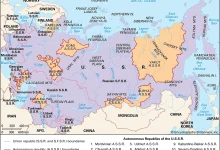The smallest country in Africa, both in terms of land area and population, is the Republic of Seychelles. This archipelago nation is situated in the Indian Ocean, off the eastern coast of the African continent. Comprising 115 islands, Seychelles covers a total land area of approximately 459 square kilometers (177 square miles). Despite its small size, Seychelles boasts stunning natural beauty, including pristine beaches, lush tropical forests, and vibrant coral reefs, making it a popular tourist destination. With a population of around 98,000 people, Seychelles is one of the least populous countries in Africa. Its economy is primarily driven by tourism, fishing, and offshore financial services. The country has a unique blend of cultures, influenced by African, European, and Asian traditions, reflecting its diverse history of colonization and trade. As a member of the African Union and various international organizations, Seychelles actively participates in regional and global affairs despite its diminutive size.
More Informations

Certainly, let’s delve deeper into the various aspects of Seychelles:
Geography:
Seychelles is located in the western Indian Ocean, northeast of Madagascar and about 1,600 kilometers (994 miles) east of mainland Africa. The country consists of 115 islands spread across an exclusive economic zone of approximately 1.3 million square kilometers (500,000 square miles). The main islands are Mahé, Praslin, and La Digue, which are granitic in origin and feature dramatic granite peaks, lush vegetation, and stunning beaches. In addition to the granitic islands, Seychelles also includes numerous smaller coral islands and atolls, such as Aldabra, a UNESCO World Heritage Site renowned for its unique ecosystem and giant tortoise population.
Population and Culture:
The population of Seychelles is diverse, with influences from Africa, Europe, and Asia. The majority of the population is of mixed descent, with significant contributions from African, European, Indian, and Chinese ancestries. Seychellois Creole, a French-based creole language, is widely spoken alongside English and French, reflecting the country’s colonial history. The culture of Seychelles is vibrant and eclectic, characterized by a blend of traditions from its various ethnic groups. Music, dance, and cuisine play integral roles in Seychellois culture, with traditional sega music and dance being popular forms of expression.
Economy:
Seychelles has a relatively small but diversified economy. Tourism is the primary driver of economic activity, accounting for a significant portion of the country’s GDP and employing a substantial portion of the workforce. The pristine beaches, crystal-clear waters, and diverse marine life attract visitors from around the world. Additionally, Seychelles is known for its luxury tourism sector, offering high-end accommodations and services to affluent travelers. Apart from tourism, fishing is another important sector of the economy, with Seychelles being a major exporter of tuna and other seafood products. The country also benefits from offshore financial services, although efforts have been made in recent years to strengthen regulations and combat financial crimes such as money laundering and tax evasion.
Environmental Conservation:
Seychelles is renowned for its rich biodiversity and commitment to environmental conservation. The country has established numerous marine and terrestrial protected areas to safeguard its unique ecosystems and endemic species. Notably, Seychelles has made significant strides in marine conservation, with around 30% of its territorial waters designated as marine protected areas. The government has also implemented initiatives to promote sustainable tourism practices and reduce the environmental impact of human activities. Furthermore, Seychelles is a global leader in marine spatial planning and has pioneered debt-for-nature swaps to finance conservation efforts while reducing national debt.
Political System:
Seychelles is a democratic republic with a multi-party political system. The President of Seychelles serves as both the head of state and the head of government, with executive power vested in the presidency. The National Assembly is the legislative body, comprising members elected through a proportional representation system. Political stability has generally prevailed in Seychelles since the country gained independence from Britain in 1976. However, like many democracies, Seychelles has experienced periods of political tension and electoral competition. The government has made efforts to promote good governance, transparency, and accountability, although challenges such as corruption and nepotism persist.
International Relations:
Seychelles maintains diplomatic relations with numerous countries and is an active participant in regional and international organizations. As a member of the African Union, Seychelles contributes to efforts aimed at promoting peace, security, and development on the African continent. The country also maintains close ties with regional organizations such as the Indian Ocean Commission and the Southern African Development Community (SADC). Additionally, Seychelles has forged partnerships with various international actors, including the United Nations, the European Union, and non-governmental organizations, to address global challenges such as climate change, maritime security, and sustainable development.
Overall, despite its small size, Seychelles occupies a unique and significant position in Africa and the global community. From its stunning natural beauty to its diverse culture and commitment to environmental conservation, Seychelles continues to captivate visitors and admirers alike while playing an active role in regional and international affairs.

